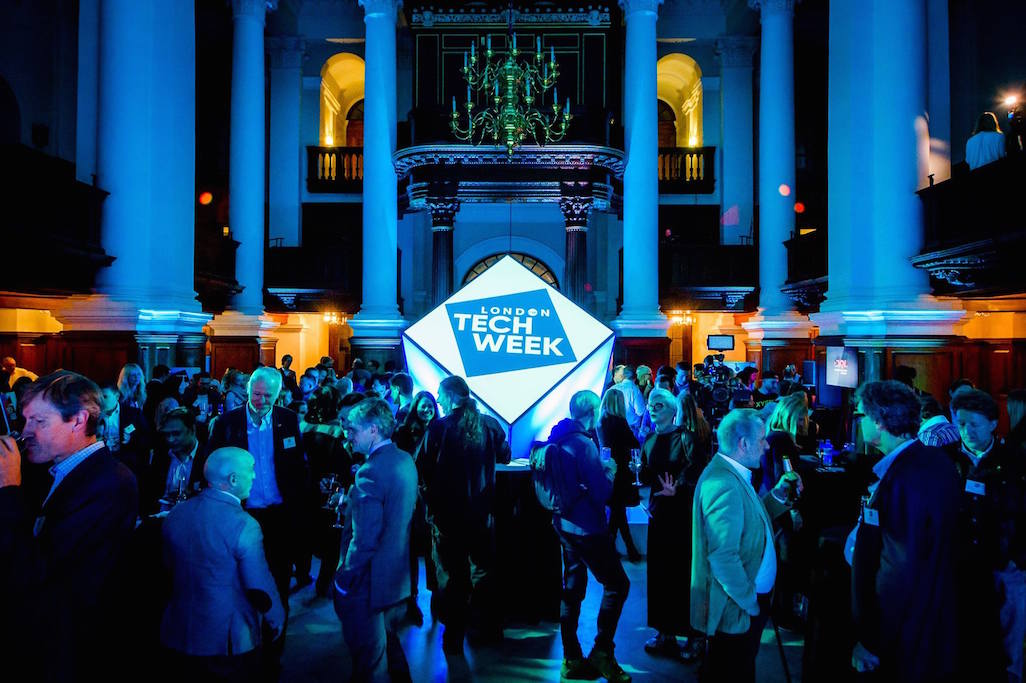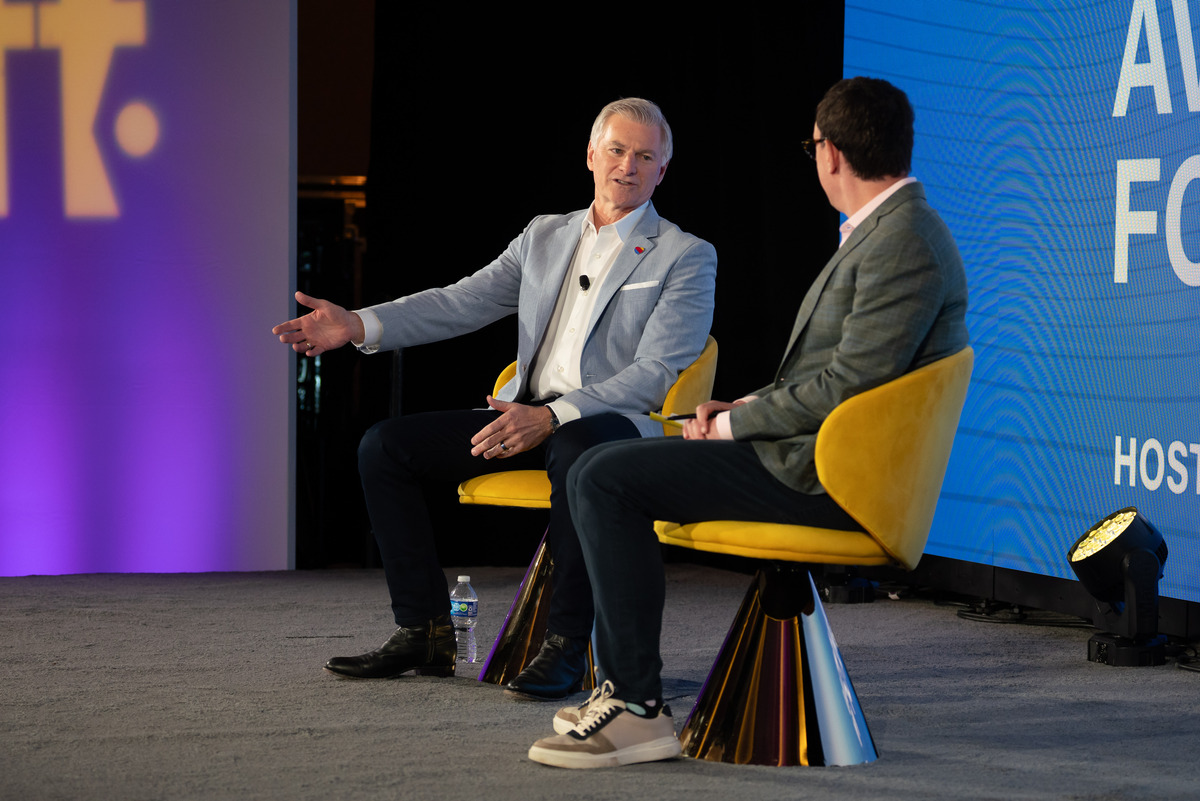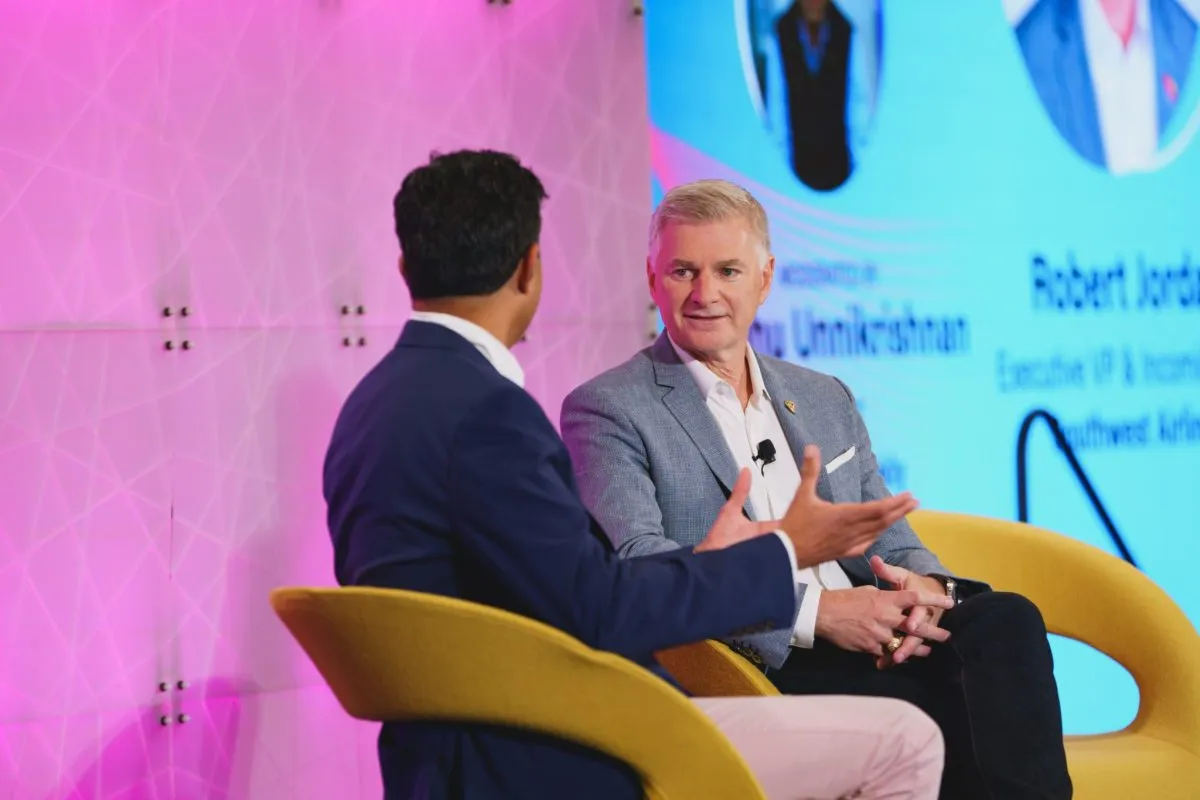London Tech Week Is Helping Pivot the City Into Europe's Startup Capital

Skift Take
Europe’s top convention bureaus are positioning themselves more strategically as platforms for crowdsourcing and co-locating conferences in aligned industries.
London & Partners is doing this at the local level by aggressively clustering London Tech Week with as many other tech conference as possible. That gives smaller events a bigger stage and access to global marketing, and it drives greater worldwide exposure around London's booming tech industry year-over-year.
The inaugural London Tech Week in 2014 launched as somewhat of an experiment, developed initially as a collaboration between New York ex-mayor Michael Bloomberg and London’s mayor at the time, Boris Johnson. The two men saw an opportunity to leverage London’s burgeoning startup scene in Shoreditch’s Tech City district in East London as a catalyst for economic development for the entire capital.
Primarily, they wanted to ensure that the city remained competitive with the surging European startup communities in Barcelona, Amsterdam, and Berlin.
In June, London Tech Week 2016 hosted more than 45,000 attendees at 300-plus sessions in 207 venues. Target attendance is 100,000 attendees in the next three years.
The lead organizations behind the event are: London & Partners, the Department for International Trade, the Tech UK trade association, Tech City, the ExCel London convention center, and the Tech London Advocates group, consisting of more than 3,500 tech and knowledge industry professionals.
Promoted as “The First Festival of Health, Travel, Retail, Advertising, Fashion, Food, and Financial Tech,” the 5-day event has more than doubled in size in three years because it’s designed as an open-source event platform.
Meaning, London & Partners encourages any tech company to create their own events around the parent event during the same timeframe, which the bureau will promote under the London Technology Week banner. The strategy is similar in some ways to South by Southwest in Austin and Mobile World Congress in Barcelona.
For London Tech Week 2017, London & Partners is joining forces with the KNext365 portfolio of tech and scientific conferences, bring six additional events into the London Tech Week fold, including Apps World, 5G World, and VR & AR World Summit.
Looking ahead, the bureau wants to copy that strategy by clustering events in other industry sectors, ranging from the fashion to financial industries, while still focusing on the tech innovations within each. Part of that strategy includes founding and funding the Traveltech Lab in partnership with The Trampery co-working company in 2014 to support local startups and attract foreign talent in tourism and hospitality.
We sat down with Tracy Halliwell, director of conventions/major events at London & Partners, during the IMEX America meetings industry tradeshow in Las Vegas last month for deeper insight into the bureau's clustering strategy.
Skift: What was London & Partners' role in the development of London Tech Week?
Tracy Halliwell: When we became London & Partners, we moved from being just a convention bureau to becoming more of an economic development organization. So we started to work with people like our colleagues in Foreign Direct Investment (FDI) who are responsible for attracting new investments into London. We started to work with the guys who were attracting students into London, and suddenly we started to talk about the whole industry, academic, and government ecosystem in the city.
What really interested the politicians and our funders was how to leverage our tech sector, which employs 340,000 people now, just in London. That's a worldwide expertise cluster that you can really do something with, because we're becoming really good at attracting this kind of stuff to London.
So within the meetings and events world, if we can align all those clusters, we've got a much better story to attract meeting planners to London, because there are all these centers of expertise. In terms of the tech sector, when you're trying to put together a tech meeting of some kind, whether that’s a Salesforce or Microsoft user group conference, or a hackathon or a venture capitalist meeting, you can call on those 340,000 people as your delegate base, as speakers and content programmers, right there in the city.
Skift: And the aggregate value of the clusters is more than the sum of the parts for networking opportunities.
Halliwell: Yes, the networking opportunities are considerable. We call it a bit of a “dinner party culture.” In London, you can be at a dinner party and you'll be sitting next to someone in the tech sector or finance or political, or film and media, or life sciences, who all live and work and develop things in London. That doesn't happen anywhere else. In the States, the media world might be in L.A., while the financial world is New York and Boston, and legal is in Washington. So you have to get on a plane and go to all these different places. Whereas in London, they’re all there. So what happens is people network with each other at meetings and conferences, and things happen. You get a lot of exciting convergences and ideas.
Skift: Why did London & Partners develop the TravelTech Lab?
Halliwell: Technology is impacting every industry, so now you have fashion tech, ed tech, fin tech, ad tech, etc., all of these different clusters. We decided wouldn't it be fab to have a travel tech lab, so that's what we created. We have 600 partners who are all in the travel space, whether they're hotels or venues or airlines, and if you can collaborate with young entrepreneurial startups and give them access to these 600 experienced local partners in our space, how great would that be?
That's exactly what the Traveltech Lab and others are doing. It's bringing together that new thinking, entrepreneurial startup mentality where you can develop a idea and scale up and really get the idea out there.
Skift: What have been some of the success stories to date?
Halliwell: Touriocity was in there and they have since moved on into their own offices now. They offer tailor-made tours in the leisure market. In the meetings sector, Micebook is an online planning tool where you can have all of your industry contacts in one place, and you can take that with you when you move to a new job. They work with a lot of our partners in the industry, and we've given them a fair amount of advice from a destination perspective. Another interesting one is Dufl. It's a system for business travelers where they'll dry clean your clothes and ship your luggage to your next city.
Skift: How are you planning to continue evolving London Tech Week?
Halliwell: The strategy relies on creating this main event with fringe events surrounding it during the same week. London Tech Week sort of started because we wanted to promote our tech sector, so through our FDI friends again, we just started connecting people and really connecting the dots together in tech.
For next year, KNext365 has six tech events that they've now brought together in London, and so we've created a hub at ExCel with six different business-to-business and consumer events. Now we're now really expanding the Tech Week ecosystem. We also won the national drone racing championships, so that's a consumer driven element for next year. We've still got all the meetups and hackathons and everything the tech world is creating.
Now Tech Week is the biggest crowdsourced tech event in Europe, because people are doing their own events. All we do is build the platform. They can advertise themselves on the website, and they can be part of London Tech Week. We also do a couple events.
Skift: How are you innovating when it comes to developing private-public partnerships?
Halliwell: For a normal convention bureau, the partners would be hotels and venues. With London & Partners, our partners are everybody. They're the stakeholders, the city associations, the financial companies, the tech companies. It's the whole ecosystem, so we're in a unique position to pull all of that together, and say, "Right, we want somebody to talk about that this or that in any sector, and then we go out and get them."
This is a platform that people love because we're not imposing anything. There's no kind of formula for them. Basically, you do you what you want to do, but just put it under the banner and bring it that week. So it's a little like South by Southwest, or GMSA, who have Mobile World Congress in Barcelona. We've done it with tech, so now we're thinking how can we do that with life sciences, but it's more difficult, especially with creative.
Every day in London there are hundreds of events going on, but they're all small events that aren't particularly loud. If you can smash a few of those events together and create a bigger event, it just creates a bigger noise for the content of the event and for the city. It shows that there's all of this fabulous stuff going on, and that's what's going to attract more delegates.




